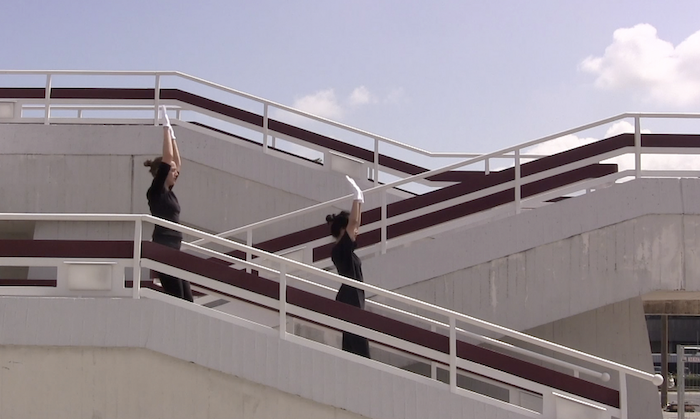
Welcome to Our new portfolio
My name is Manniif (Μάνιηφ)
It was about six years ago when my younger sister, Melina, decided to call me that, as she also has the name POtof (Πότωφ).
She is now 14 years old. POtof and I live in POtof's kingdom. POtof leads the system, she has power over almost everything. Manniif must abide by POtof's rules and also needs to speak the local language, "Potofanika", also created by POtof, in order to communicate with it.
My sister, in order to approach me in the improvised and fantastic world of her game, doesn't call me Maritina but Manniif, and when this happens, we both know that we have to change voices quickly and embody our fantastic characters.
The politics of names is about the dominance and hierarchy created by the imposition of roles in the family. The artwork presents a condition of reversal of these roles and the possession of a new name, that of Manniif, which this condition offered through the behavior adopted by POtof, the ruler of the game, which appears to be manipulative and authoritarian.
It is often observed through research and experts that first-born and/or older siblings usually assume the dominant/superior role, while younger siblings have the role of follower or less dominant. In this particular pattern, the opposite happens.
We are talking about a dominant-submissive role-play pattern between these two characters, who are actually siblings and belong to the same environment they come from.
The language of the Potofanika, "Potofanika", is a fictional and non-existent language in the physical world originally created and invented by a fictitious being, the POtof, which was then enriched by Manniif. Over the years this language was assimilated and supplemented with its vocabulary and grammar. It is spoken exclusively by these two characters.



